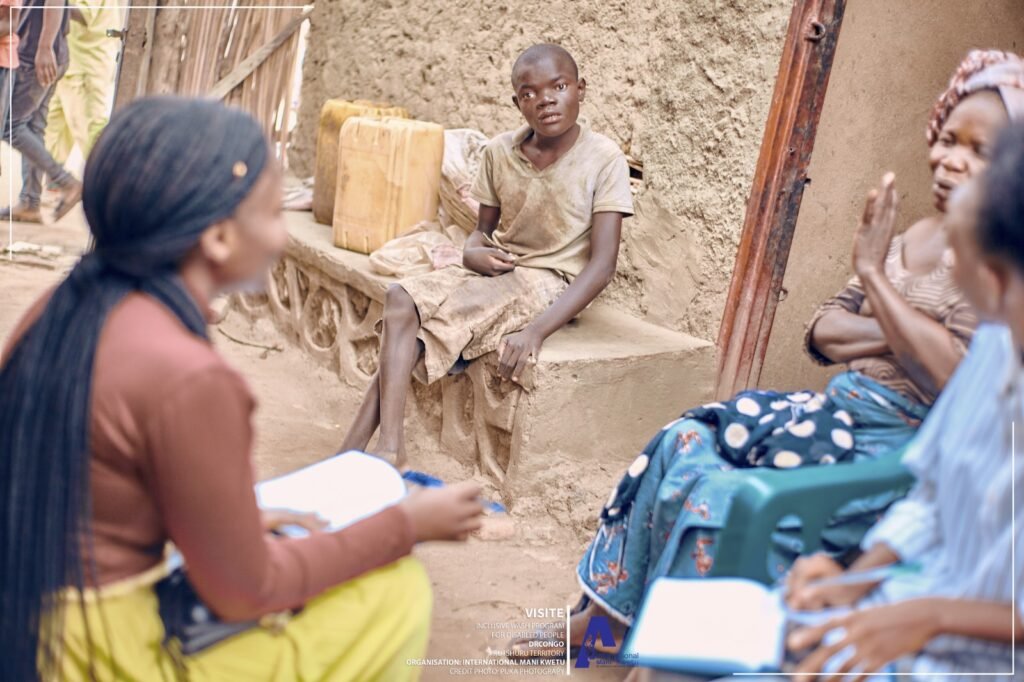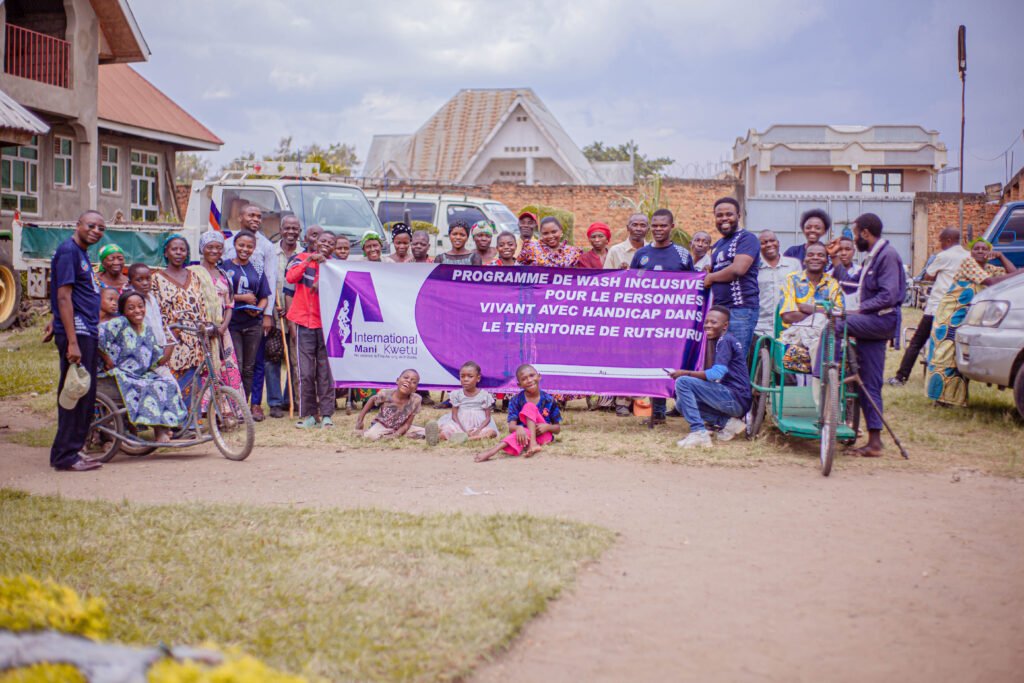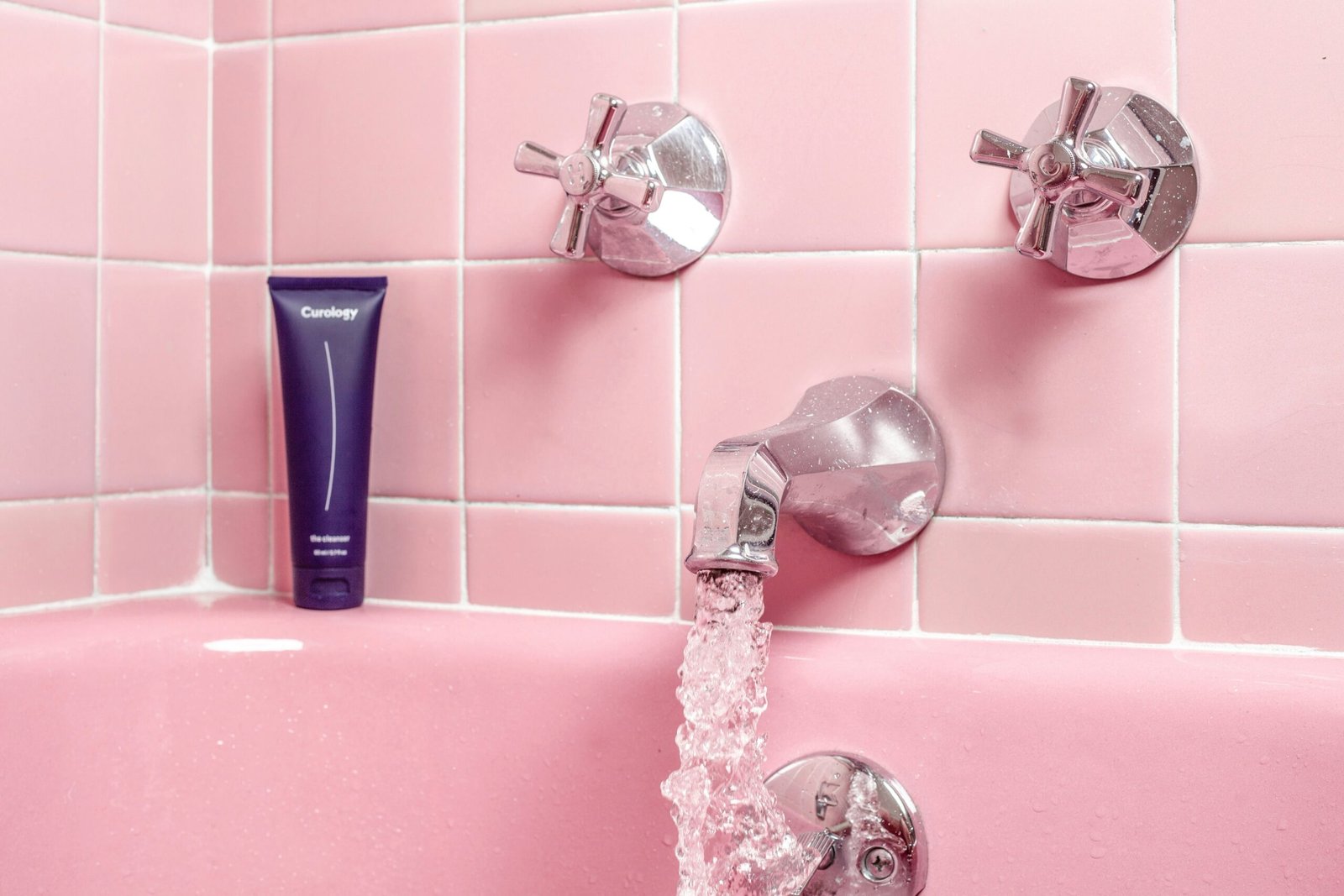In line with UNICEF’s child rights-based approach, it is imperative to promote the inclusion of disability to ensure access to water and sanitation for all, including people with disabilities, by 2030. People with disabilities, especially children, have the same rights as everyone else, including access to an inclusive Water, Sanitation, and Hygiene (WASH) system. This issue must be considered an emergency and a priority, particularly in Rutshuru territory.
During a recent door-to-door visit in the town of Kiwanja, I gained a deeper understanding of the realities faced by people with disabilities. It is disheartening to imagine the challenges they encounter in terms of accessing emergency sanitation, clean drinking water, and maintaining a hygienic environment. The efforts they make to reach toilets and clean water sources, despite the obstacles caused by their disabilities, are commendable.
The difficulties faced by people with disabilities in accessing adequate sanitation facilities and clean water are not only physically burdensome but also pose significant health risks. Their limited mobility may prevent them from reaching toilets and water sources, exposing them to various disease-causing agents in their surroundings. It is our moral obligation to intervene on their behalf and ensure that WASH services are adapted to their specific living conditions.
Addressing this issue requires a multi-disciplinary approach. It is crucial for the population to take ownership and responsibility for this emergency, working together with organizations like Amani Kwetu International. As individuals responsible for health, we must analyze the scale of this emergency, inform the affected population about the current rate of morbidity, and provide ongoing support for the well-being of all.
Remaining silent in the face of this challenge would be a crime against humanity. Making water, sanitation, and hygiene more accessible to all is not just a moral obligation; it is our duty. By ensuring that people with disabilities have equal access to WASH facilities, we can promote their overall well-being and contribute to a more inclusive society.
To achieve this goal, it is essential to implement practical measures. Firstly, infrastructure should be designed to be inclusive, considering the needs of people with disabilities. This includes constructing accessible toilets, installing ramps, and providing handrails for support. Additionally, water sources should be made easily accessible, with provisions for individuals with mobility impairments.
Education and awareness campaigns are also crucial. By promoting understanding and empathy within the community, we can break down barriers and eliminate stigmatization towards people with disabilities. These efforts should focus on dispelling misconceptions, fostering inclusion, and encouraging equal treatment for all.
Furthermore, collaboration between government agencies, non-profit organizations, and local communities is vital for sustainable change. By working together, we can develop and implement policies that prioritize the inclusion of disability in WASH programs. This collaboration should also extend to monitoring and evaluation, ensuring that the initiatives put in place are effective and continuously improved.
In conclusion, promoting the inclusion of disability in water and sanitation initiatives is a fundamental step towards achieving universal access to WASH services. People with disabilities have the same rights as everyone else, and it is our responsibility to ensure that they can access clean water, sanitation facilities, and hygiene practices. By taking a multi-disciplinary approach, raising awareness, and fostering collaboration, we can make significant progress towards a more inclusive and equitable society.



